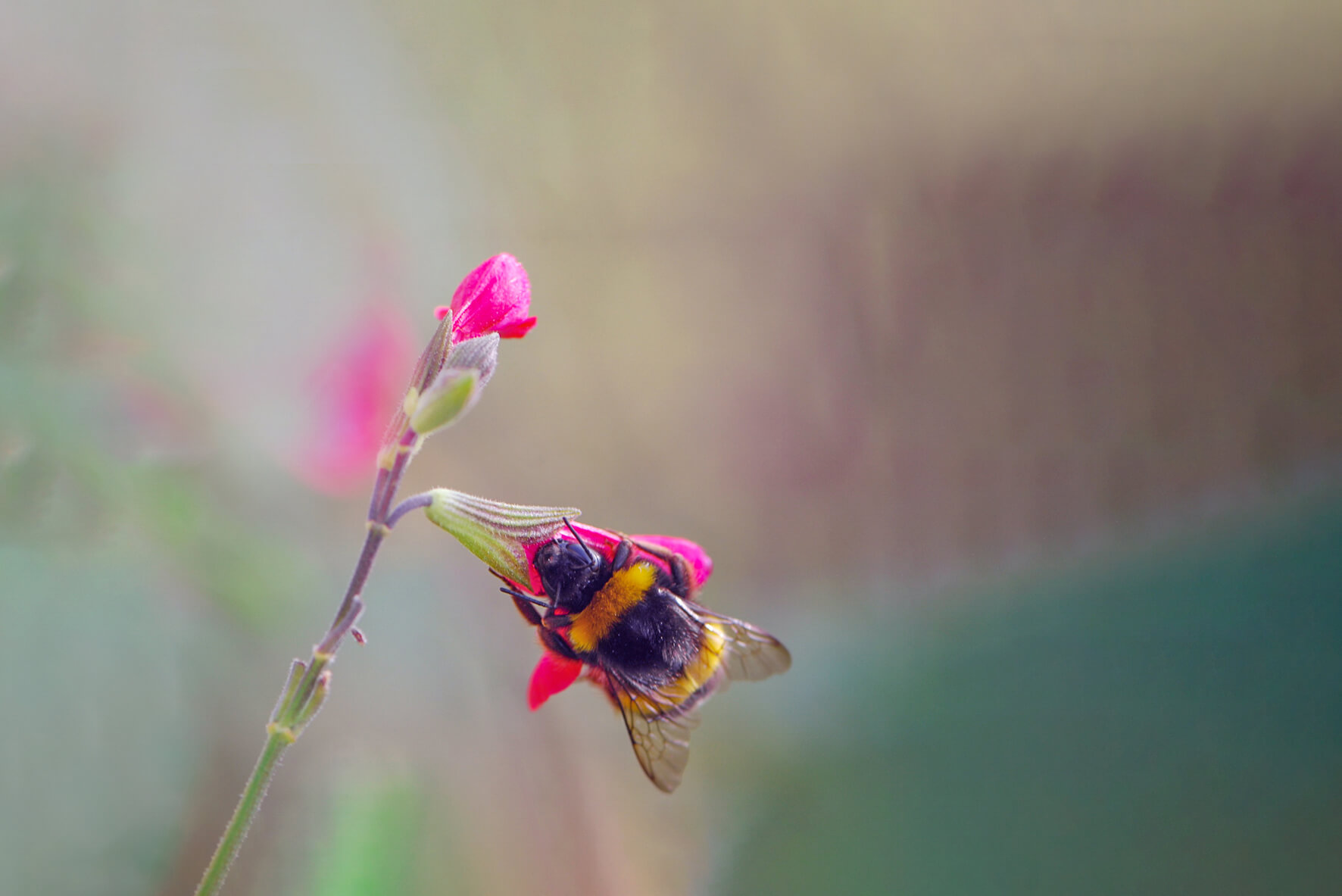
Biodynamic agriculture
Biodynamic agriculture brings vitality to the soil, to the plant and most importantly, to the fruit it bears, which later will become our source of life.
Biodynamic Agriculture is a holistic approach to agriculture in which vitality is the priority. The vineyard is seen as an organism in which plants, animals and humans are integrated together, forming a whole and helping each other to grow stronger and more vital.
The origin of Biodynamic farming is to be found in the lectures given by Rudolf Steiner in 1924 and it is based on 5 pillars.
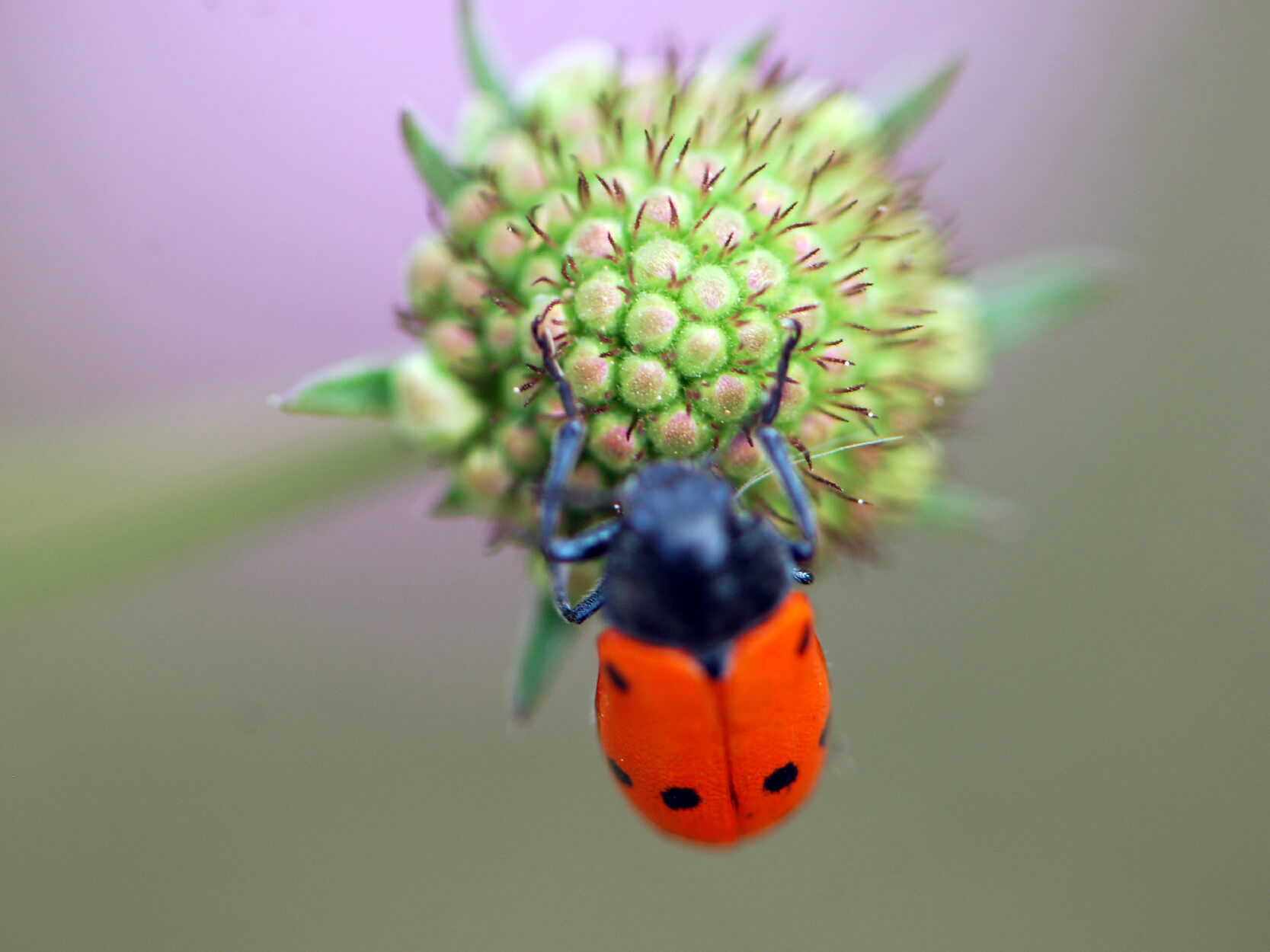
To promote biodiversity in the ecosystem
Biodynamic agriculture is characterized by its positive impact on soil health and fertility, which contributes to preserving the ecological balance. Additionally, biodynamic farming supports biodiversity protection and animal welfare as it works with ecological systems and cycles, helping to sustain them.
The rhythm of nature and cosmos
Biodynamic agriculture works with the vital energies in nature and not only with the material needs. That is why the consideration of cosmic rhythms in the cultivation of plants is so important. For example, pruning the vines -one of the most important tasks in the vineyard- when their sap is collected in the root parts, away from the woody vessels of the trunk. In this way, we help the vine to prolong its life and give a balanced amount of fruit.
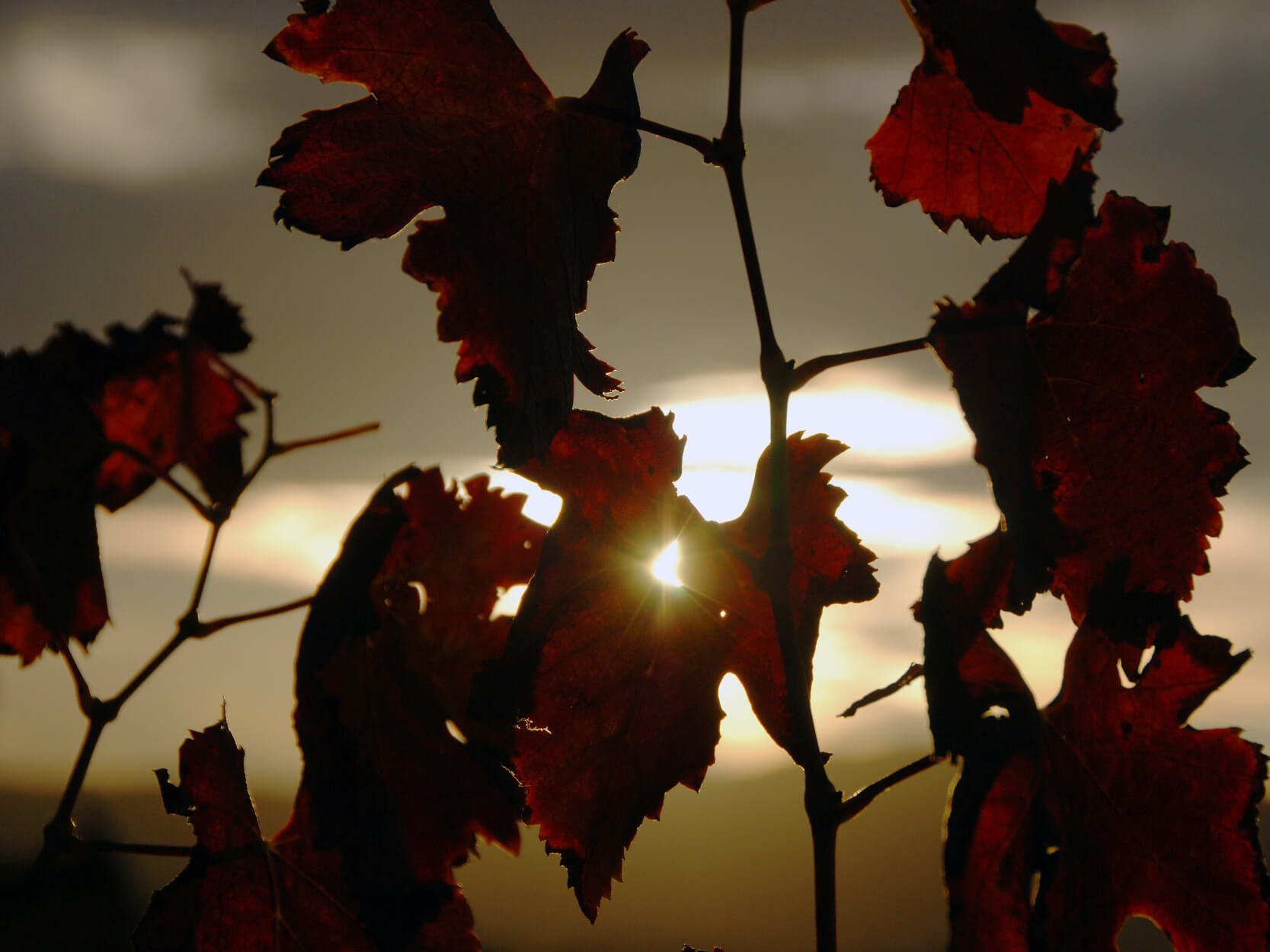
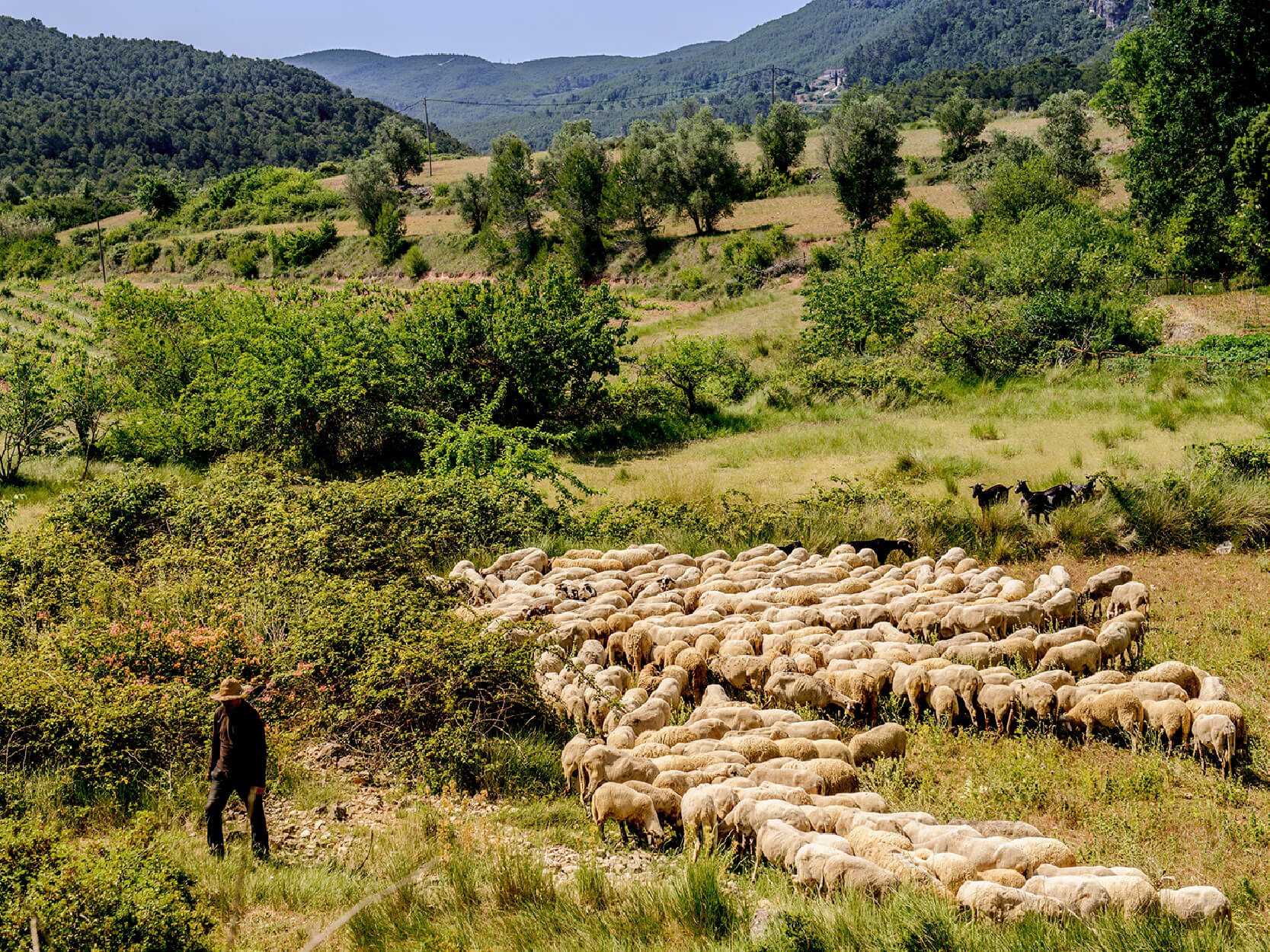
Consciousness and love for the land
For us, the connection with the land is crucial. That is why we cultivate our vineyards with biodynamic agriculture. Our purpose is simple, to strengthen the balance and biodiversity of the soil and our environment through our own actions in the vineyard. No use of herbicides or pesticides.
Application of the Biodynamic preparations
Biodynamic preparations consist of two parts: plant and animal.
The idea of the proponent of biodynamics, Rudolf Steiner, is that the forces in plants and animal organs can be combined in such a way that nature can improve, heal and support each other during the course of the year.
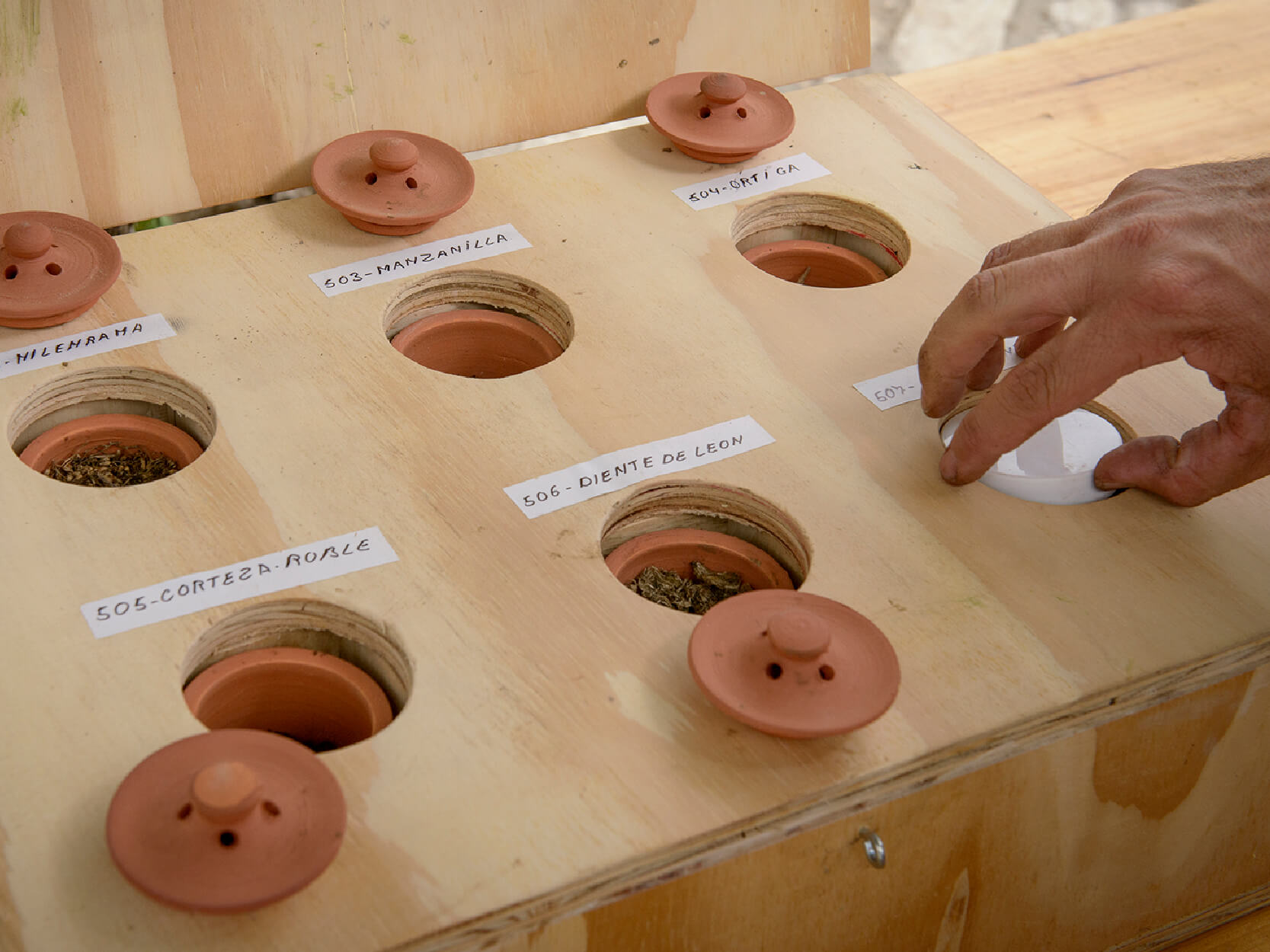
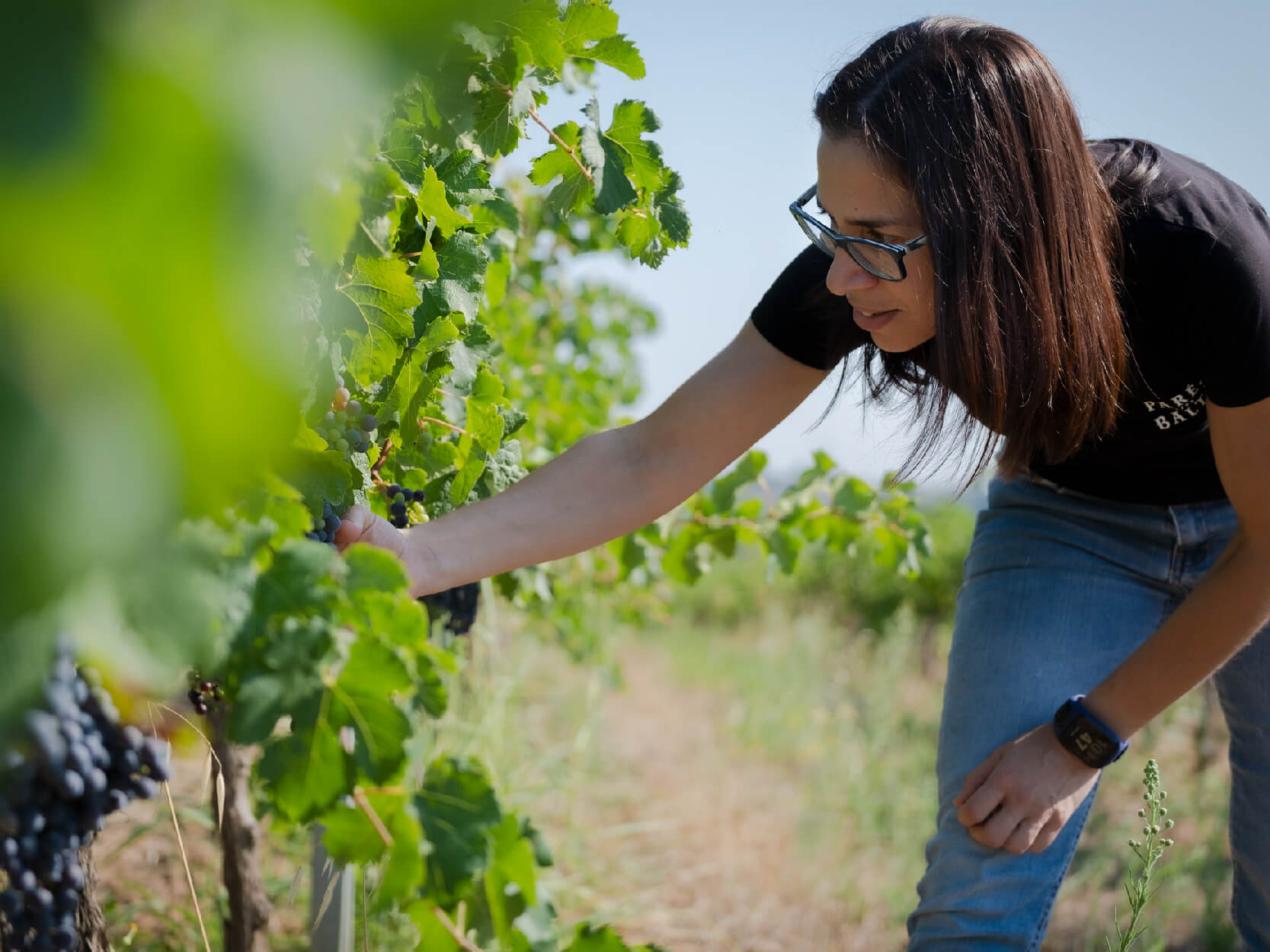
Observation of nature
At Parés Baltà we believe that only through meticulous observation of nature can we become aware of its needs in order to accompany it and help it to express itself freely and bear the best possible fruit.
To achieve the maximum vitality of our vines we use Biodynamic Preparations, we work with cover crops, promoting biodiversity, and we integrate animals into the work in the fields, such as a flock of sheep and goats. We also use bees to help us pollinate the flowers and create a more sustainable world.
Biodynamic preparations in viticulture
Preparations of the seven healing plants for compost
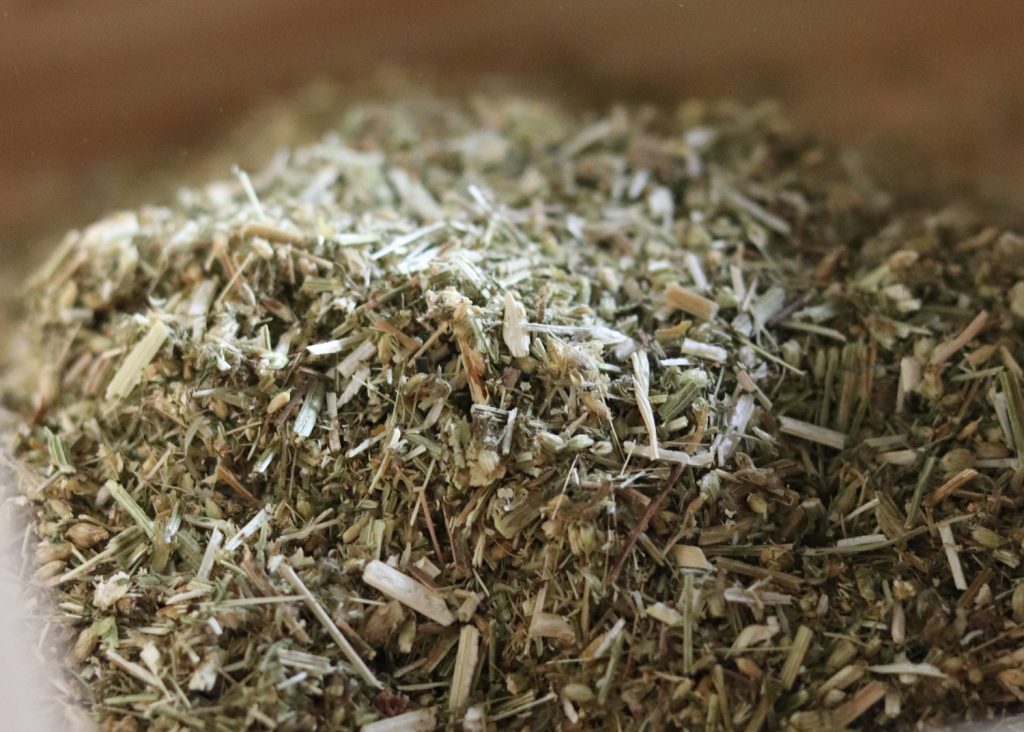
Preparation of Yarrow
(Preparation 502)
Acts in the processes of sulphur and potassium which contributes to the development of crop growth.
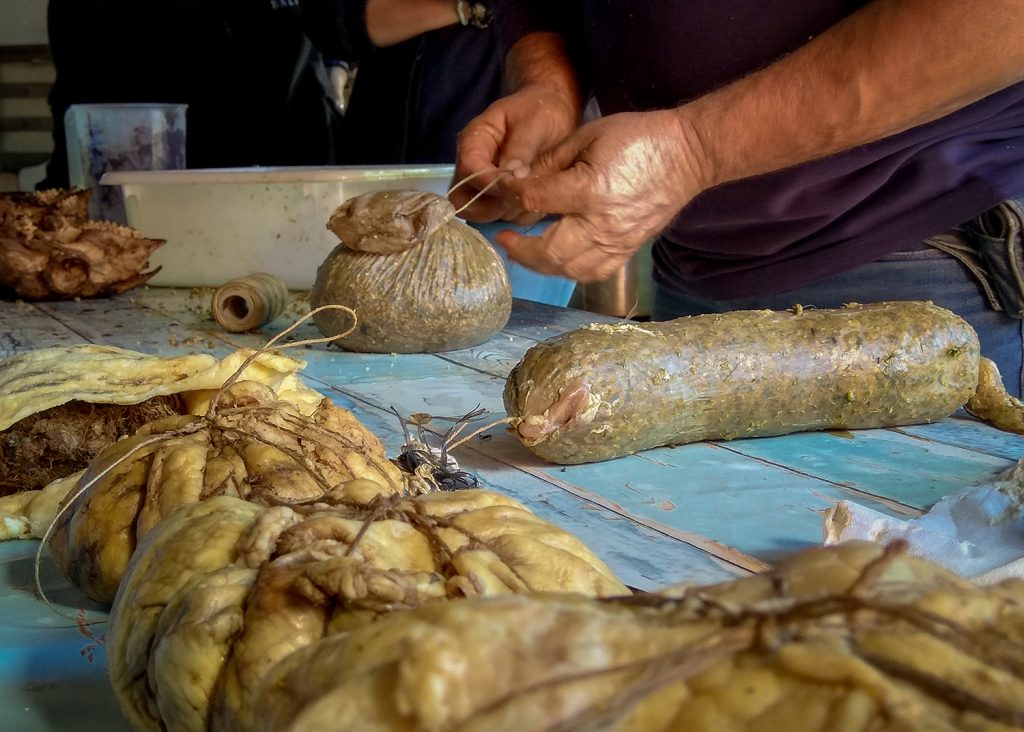
Chamomile Preparation
(Preparation 503)
Regulates nitrogen processes in the compost.
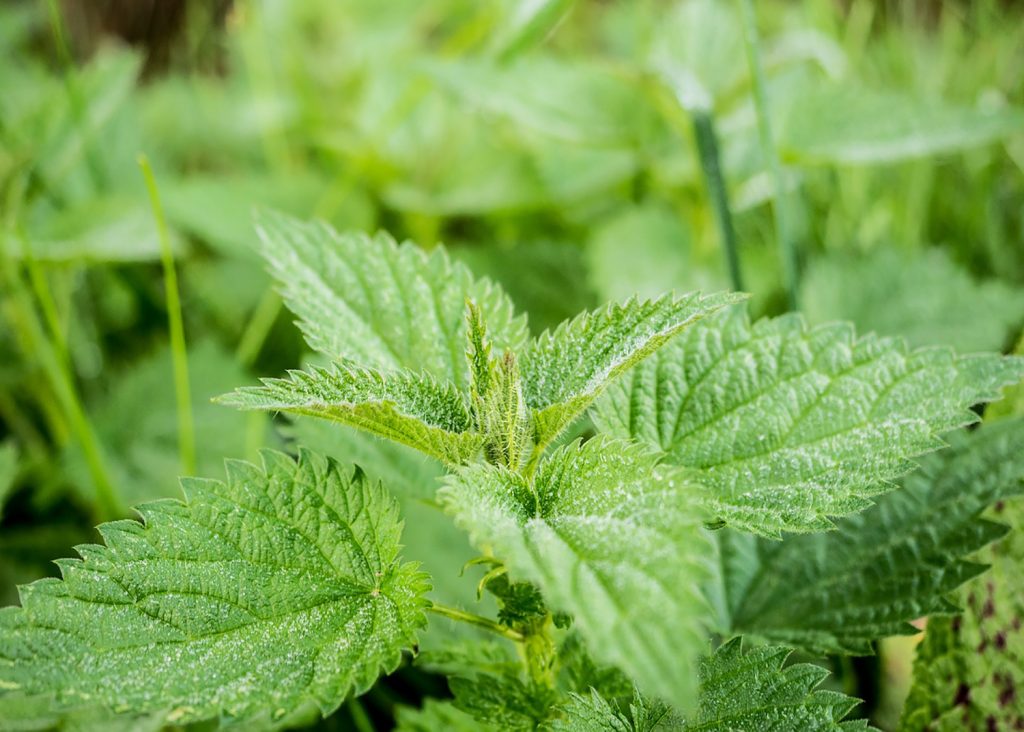
Nettle preparation
(Preparation 504)
Acts on iron processes and contributes to the development of crop growth.

Preparation of Oak Bark
(Preparation 505)
Acts on calcium processes by attenuating plant diseases linked to proliferation or exuberance phenomena.
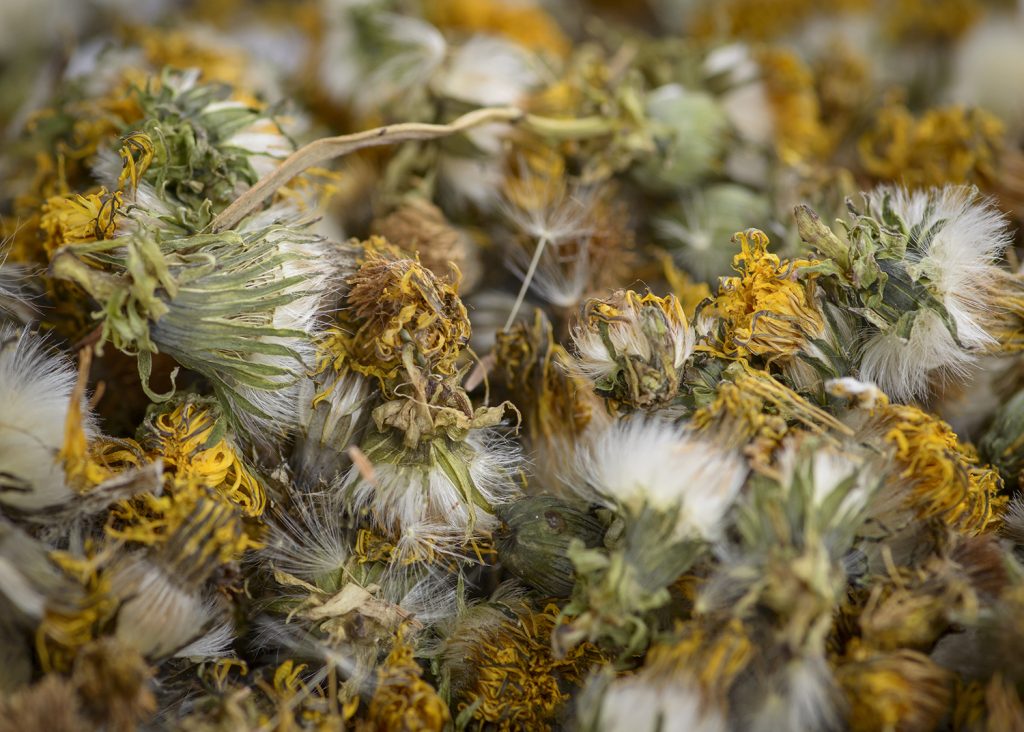
Dandelion preparation
(Preparation 506)
Reinforces silica processes and helps to maintain uprightness, increasing root formation.
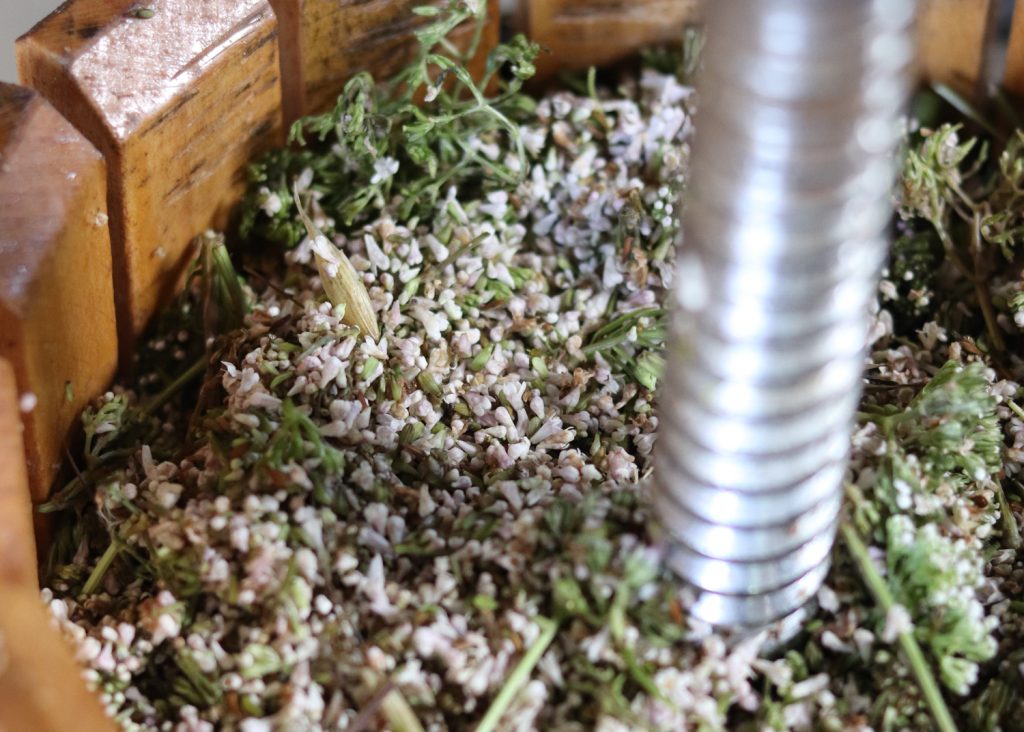
Valerian preparation
(Preparation 507)
Promotes the mobility of phosphorus processes in the compost. Valerian preparation 507 is essential, it brings warmth to the compost pile environment.
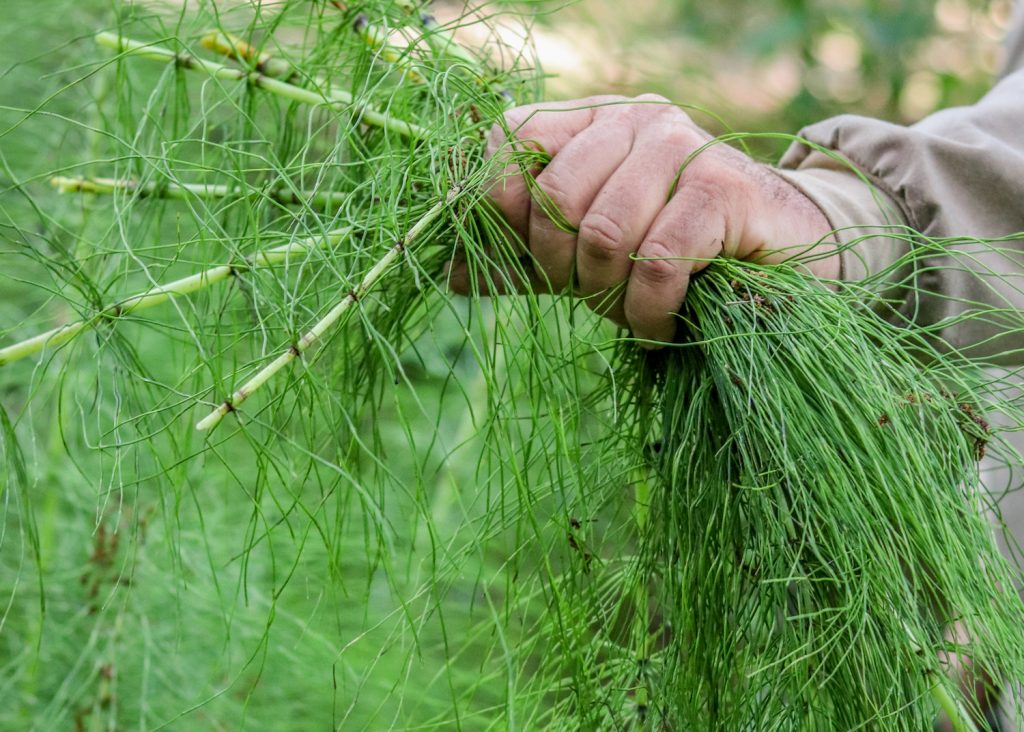
Horsetail preparation
(known as 508)
Helps prevent fungal diseases and balances the water element in plants and soil.
“Steiner wanted to take the equilibrium of the forest, where everything flows harmoniously, to the practice of farming. He wanted to create micro ecosystems intertwined with the environment, where the real protagonists are wild plants, animals and trees… creating vital two-way relationships to increase biodiversity and achieve a balance in a space where man only acts as the orchestra conductor of the farm, without altering the natural flow or forcing production.”
Observe, think, feel and act. Marta Casas, winemaker
Essential preparations in biodynamic viticulture
“It’s essential that the farmer is aware of all of the philosophy of biodynamic agriculture and anthroposophy, in order to integrate this knowledge both in the field as well as in life more generally. For us, it’s essential to first observe what you can apply, think about it in depth, feel like it’s your own and believe that you’re capable of doing it, and finally, act on it. We think that biodynamics is not an objective, but rather the means to obtain a balanced product full of life, so that when someone drinks our wines, they can notice that there is sensitivity towards everything that surrounds the wine. You shouldn’t focus on a material objective, you shouldn’t expect any specific result, but rather you should feel that it’s something good for your estate, for you, and above all, for the people who will consume your wine.”
Marta Casas, winemaker
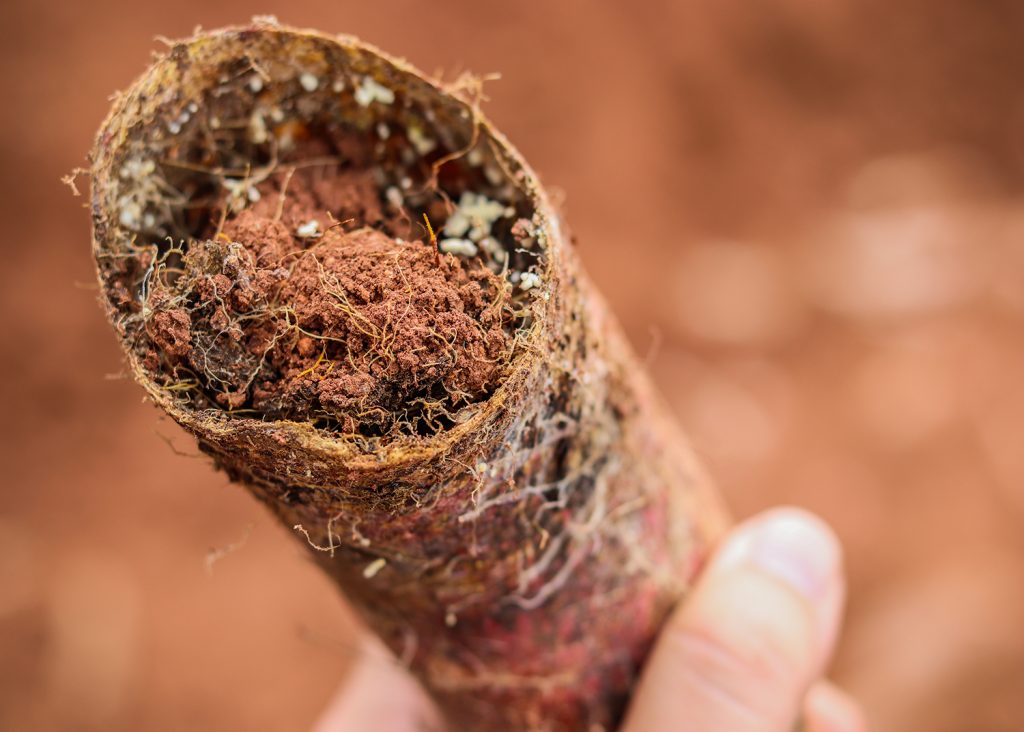
Cow horn manure preparation (Preparation 500)
Strengthens soil life and the relationship between soil and plants, it is made from cow dung buried inside a cow’s horn during the winter months. It is applied to the soil by sprinkling it with a fat drop at the beginning of the plant’s vegetative process and in autumn.
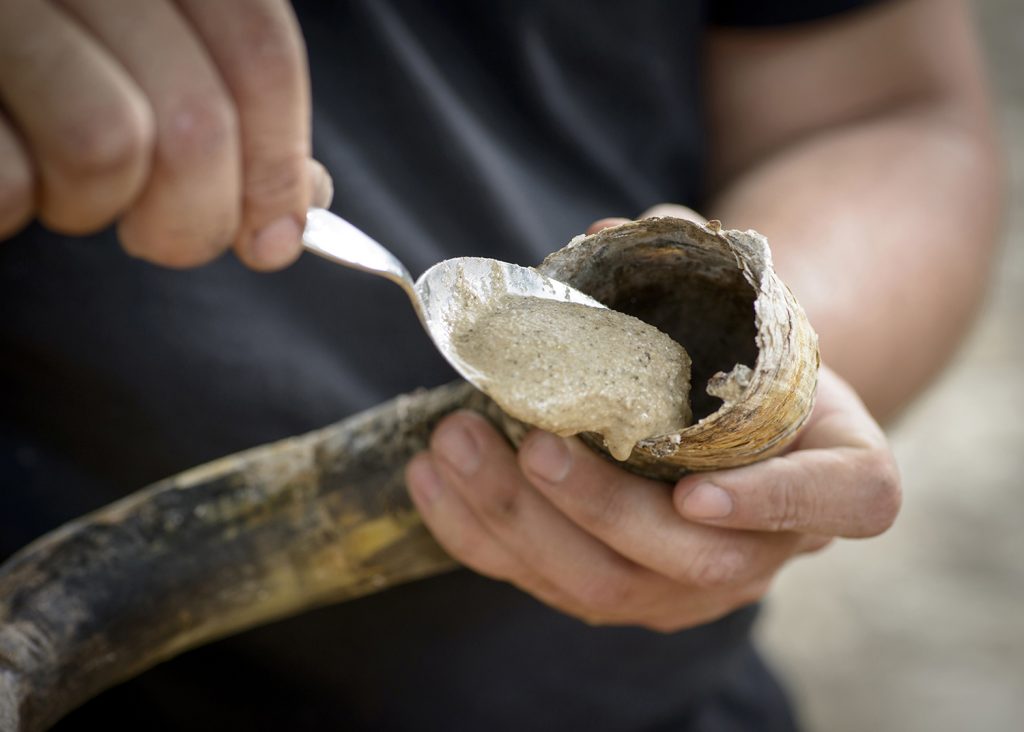
Cow horn silica preparation (Preparation 501)
Increases plant immunity, strengthens photosynthesis, improves ripening, is prepared from pulverised quartz crystals that are buried in a cow horn during the summer months. It is sprayed as a fine mist on green plants when they start to form fruiting.
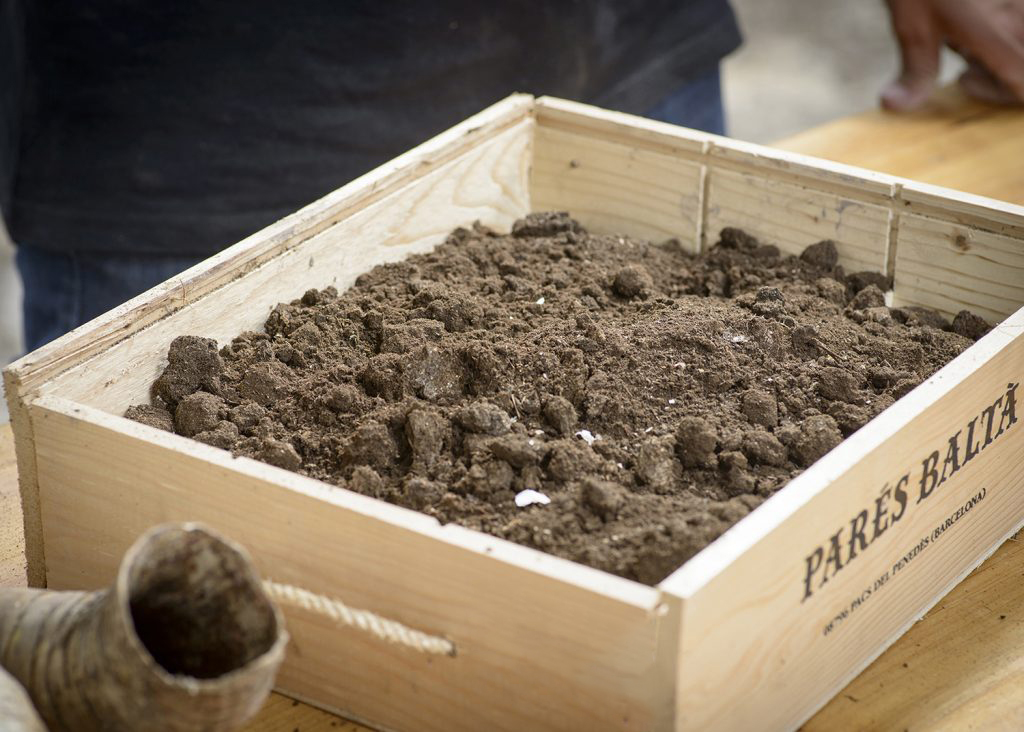
Maria Thun’s preparation
Esta mezcla de estiércol de vaca, basalto y cascara de huevo, aumenta la fertilidad del suelo y contrarresta las impurezas en el suelo, ya que es un This mixture of cow dung, basalt and eggshell increases the fertility of the soil and counteracts impurities in the soil, as it is a microbiological activator of the manure for further composting. Like the preparations 500 and 501, Maria Thun is also applied with homeopathic water dilution.
The requirements of the Demeter Standard are higher than what is required for organic products, they are very special requirements that strengthen the essential processes of soil and food. Demeter farmers actively contribute to creating a dignified future, offering healthy food with distinctive flavours and character.
The importance of compost: giving back to the land what belongs to the land
The soil in which our vineyards live is perhaps the most important factor when it comes to making wine. The soil is the habitat and source of nutrition for the vines: the quality of the grapes and subsequently of the wine is conditioned by it, as it will determine not only its quality, but also its aroma and innate liveliness.
This is why soil care is of the utmost importance for any type of cultivation.
In addition to the use of plant covers that bring life to the soil and help us to avoid its degradation, at Parés Baltà we use organic compost to nourish and strengthen it.
This natural fertiliser comes from animal and vegetable waste and although it is less mineral rich, it is of higher quality. The aim of using compost is to improve the physical, chemical and biological properties of the soil, which are determining factors in the quality of the grapes.
The benefits include the supply of nutrients and micronutrients, reduced erosion, increased mineral and moisture retention capacity, increased soil porosity and, of course, the development of soil microbial activity, thereby increasing the availability of nutrients in forms that can be assimilated by crops and increasing cation exchange capacity.
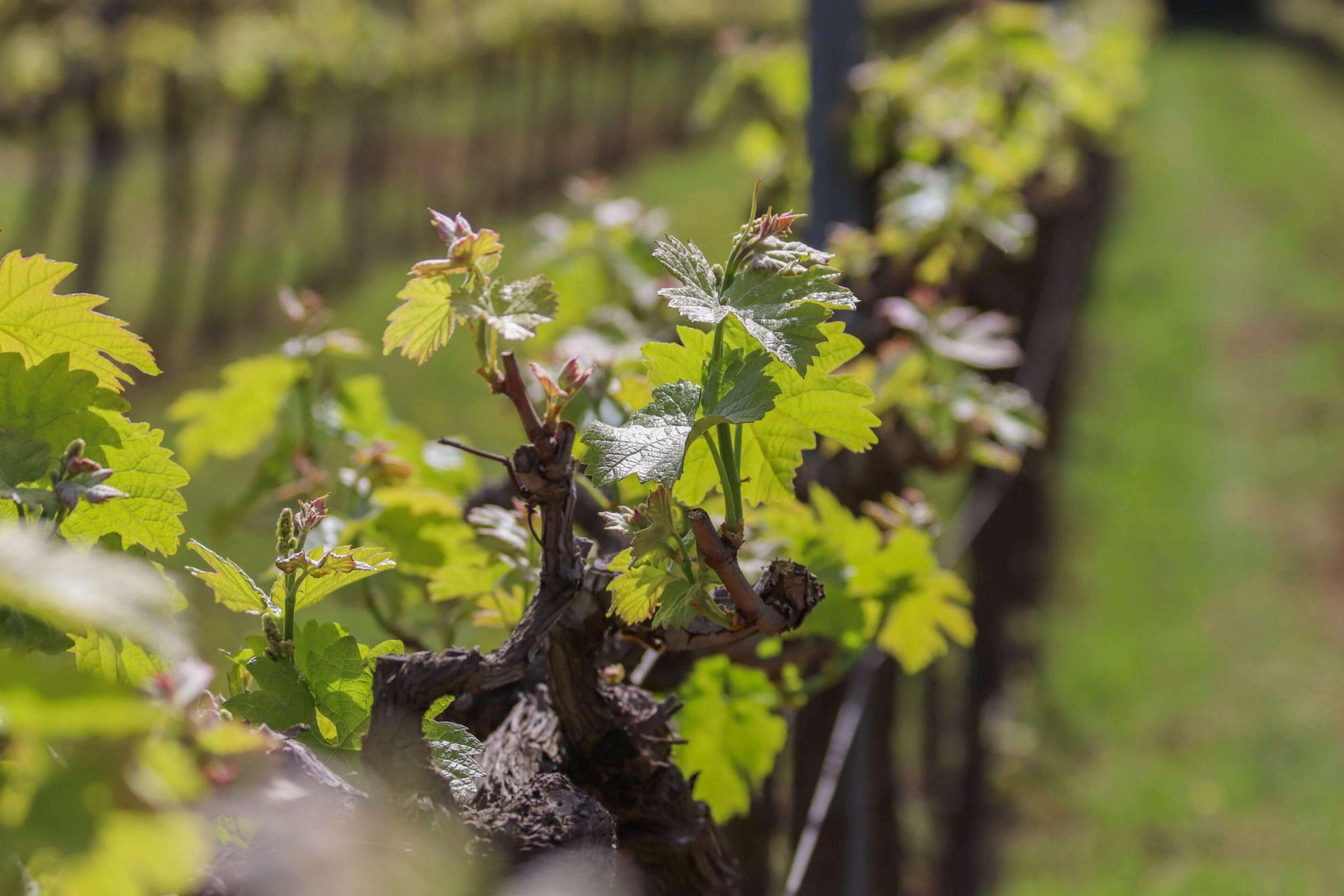
“Healthy eating and drinking are not only beneficial for us as living beings, but also for the planet. The earth is a reflection of humanity and vice versa.”
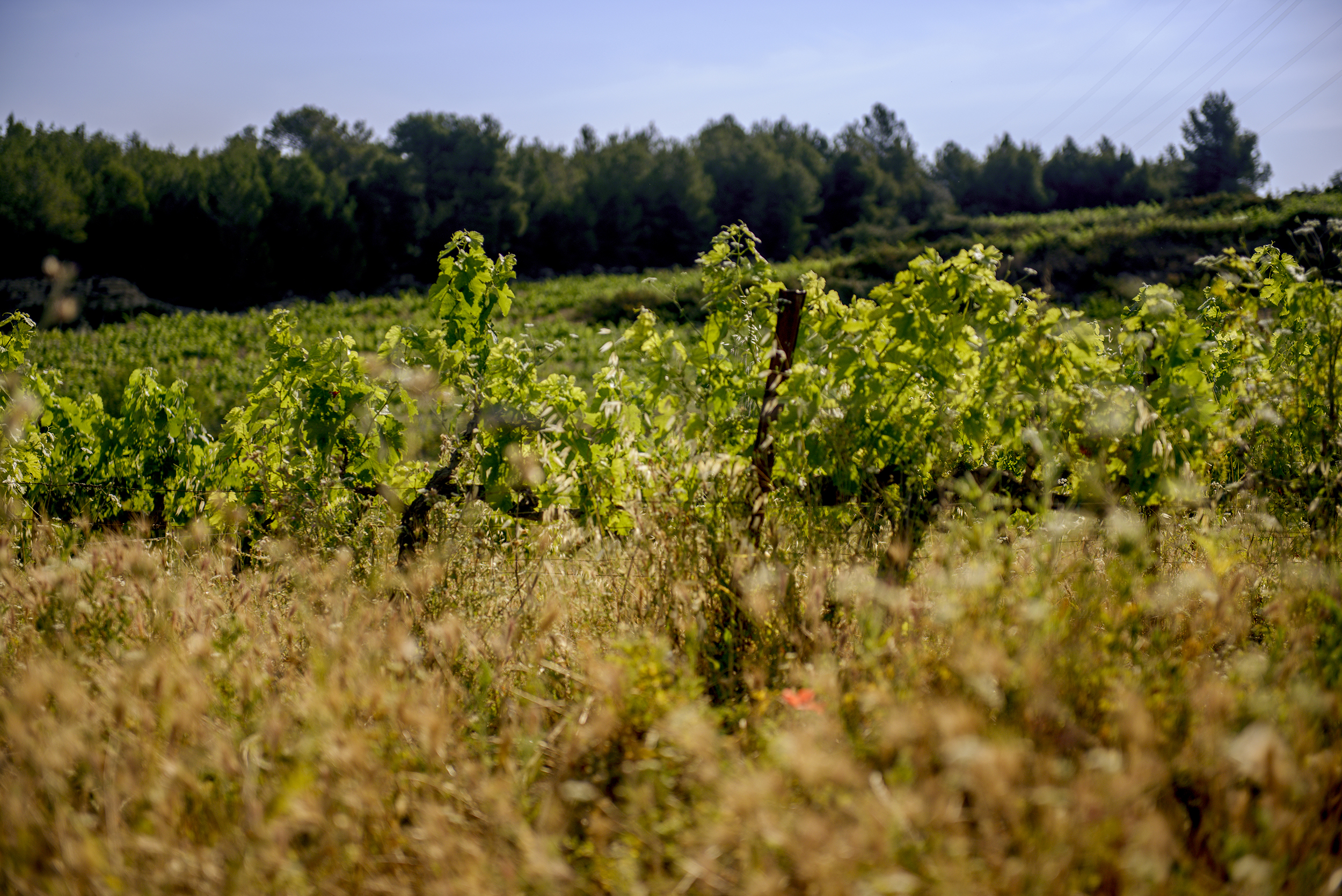
The importance of ground cover in organic and biodynamic vineyards
Plant covers are full of life, life in the form of small insects that help us to naturally prevent pests that could affect the vineyard. A very clear example of this are ladybirds. These small, friendly insects feed on aphids, which makes them extremely beneficial for agriculture, as they control pests in vineyards in a completely natural way.
Therefore, one of the objectives for the use of plant covers in the vineyard, whether spontaneous or sown, is to have a living soil, where the native flora and fauna coexist in harmony with the vineyard.
In addition to helping us to maintain a balanced ecosystem, full of biodiversity:
- Plant covers increase CO2 uptake.
- Improve soil structure.
- Make it easier for rain to penetrate the soil, increasing its water storage capacity – a very important factor to bear in mind as at Parés Baltà we do not irrigate our vineyards.
- Prevent soil erosion and degradation.
